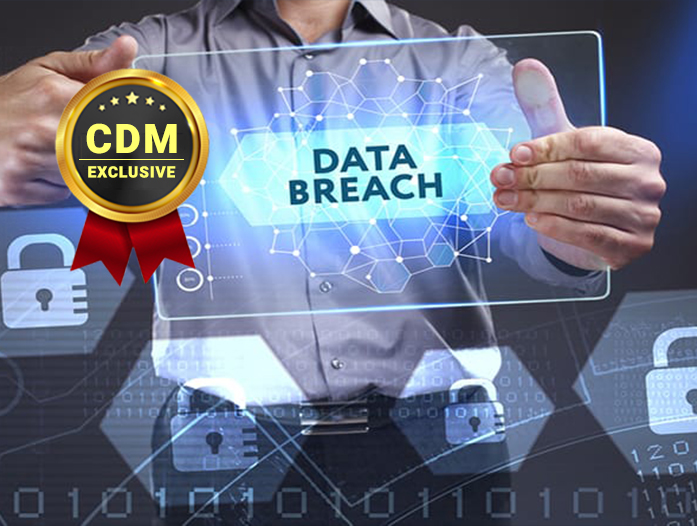By Amanda Surovec, Director, Security Engagement and Billing, Resilience Cyber Insurance Solutions and Shawn Melito, Chief Revenue Officer, BreachQuest
introduction
In the past six months, cyberattacks have been 29 percent Globally, as thousands of global organizations and insurers can attest. This trend has been the driving force behind the growth of cyber insurance, which has come a long way over the past two decades. But even then, cyber experts have sounded an alarm about the attack, drawing attention to how easy it is for hackers to successfully compromise systems and how lacking the laws to adequately address the breach.
Twenty years later, these concerns have turned into a serious crisis. The growth of technology, the Internet, and the Software as a Service (SaaS) industry has resulted in the vast majority of sensitive customer and company data being stored online, and hackers have come to understand the incredible value of this data. Not only is this information essential to our day-to-day operations, but if compromised, our customers’ trust could be compromised. Although cyber insurance has become a top priority for many SaaS-based businesses, it is becoming increasingly difficult to obtain coverage as cyber threats increase and the insurance market strengthens.
Create a game plan
Cybercrime worldwide $10.5 trillion per year by 2025increased from $3 trillion in 2015 We hear this question a lot in our work.
First, companies that use computer systems and the Internet as part of conducting business or that collect personally identifiable information (PII) from their employees, customers or third parties should purchase cyber insurance if they do not already have one. . The specific types of coverage and the amount of insurance a company must have can vary widely depending on the size and industry of your organization. You should start a cyber risk assessment and seek technical advice from a security and insurance broker expert to help you determine what is best for your business and prepare you for a cyber insurance purchase. This risk and skills assessment will help you determine potential gaps or areas of improvement in your organization’s cybersecurity program, and will help you decide what kind and how much coverage to buy.
Determining your organization’s specific cyber insurance needs will help insurance brokers find the best cyber insurance company for those needs. Some cyber insurance companies, such as Resilience, offer additional risk management benefits throughout the procurement process and policy term to help organizations secure coverage and better improve their cyber risk posture.
dress that inspires
As the cyber market intensifies, obtaining cyber insurance can be a challenge even for security-conscious organizations. This means that even before coverage is secured, brokers and insurers work with existing and prospective clients to mitigate cyber risk. Once a business is determined to be ready for cyberinsurance, management can work with them to explore the security measures they need to take to balance the cost/risk benefits of their insurance plan.
Those looking to gain coverage should be able to come to the table with a strong cybersecurity plan detailing where the data resides and how to protect it. This includes analyzing and implementing tools such as VPN and Endpoint Detection and Response (EDR), reconfiguring system infrastructure, adding multi-factor authentication, segmenting data and networks to better control access, and fully May include utilizing publicly available backup functions. gap.
Once set up, organizations should test these environments. If security tools are installed but performed or misconfigured, hackers can continue to compromise systems through known vulnerabilities or brute force attacks. However, testing can significantly mitigate this, as well as help organizations determine whether vulnerability management and patching should be done in-house or outsourced. Security teams should also be trained on how to monitor and patch systems, privacy protocols, and methods to identify phishing attempts. If they are not possible, these functions must be outsourced.
Keep premiums low once coverage is secured
Once secured, you can keep your cyber insurance premiums low on renewal by continuously improving your pre-set security posture, a process that can greatly help prevent attacks like business email compromises or ransomware. Nevertheless, if a successful attack does occur, and taking appropriate steps to mitigate the risk when an attack does occur, it can help keep insurance premiums low.
If a breach occurs and company data is held for ransom, companies must implement strict policies that restrict anyone in the organization from contacting threat actors. We’ve seen many instances where someone on the security or leadership team contacts the hacker and leaks information that makes things more difficult to solve. For example, by providing your name, company, whether you have cyber insurance, and the value of the data you import, you give hackers more power than intended. Hackers don’t always know who they attacked and the value of the data they find. Instead, the team should contact an experienced recovery and remediation group with a cyber insurance company for assistance as soon as possible. This approach allows professionals to rebuild their company’s infrastructure while negotiations are ongoing. Running your bills faster may not be intuitive, but in the end it’s almost always the most cost-effective option. The measure reduces potential business disruption claims, speeds recovery, identifies systems that can be rebuilt or upgraded, and systems that can be paid for to unlock faster.
It is more important than ever for your attorney to work with regulators in case of a violation. Most recently, in September 2021, the U.S. Department of the Treasury’s Office of Foreign Assets Control (OFAC) Produce With the updated advisory on the use of digital currencies in ransomware attacks and other financial crimes, businesses avoid simply paying the ransom to regain control of their operations after a successful ransomware attack. Although these recommendations aim to pay ransom to sanctioned companies, they could also address the surge in ransom demands and the cost of cyber insurance that has skyrocketed over the past year.
Working with clients, attorneys, IR companies and insurance companies, the ransom payment decision is always made on a case-by-case basis and requires expert analysis of the situation to be gathered and payment due diligence. complete. Sometimes a ransom is paid, but more and more often, companies use resources provided by insurance companies to fix and rebuild.
Although many cyberinsurance landscapes are still fluid, buying cyber insurance can give you a sense of security if you have become a victim of a cyberattack. It can help businesses recover after a data breach that costs thousands or even millions of dollars due to business disruption, lost revenue, legal costs, forensic analysis, and more. To best obtain cyber insurance, candidates can benefit greatly from working directly with brokers and insurers who can provide advice on setting up security tools, processes and protocols. Even if you have coverage, maintaining and improving your internal and external security practices to keep your insurance premiums low can further mitigate your risk, protecting your system from most unavoidable attacks. And if a breach does occur, calling brokers, insurance agents and related companies at the first signs of breach, such as remediation and recovery or those familiar with OFAC regulations, can help your business get back online faster with more business. value as it is.
About the author
Amanda Surovec is Director of Security Engagement and Billing for Resilience Cyber Insurance Solutions, overseeing client onboarding and Resilience Ransomware War Game Table Top Exercises. She previously worked with Surovec as a claims manager at Beazley and as a claims expert at Sphere Risk Partners. Surovec holds a BA in Human Development and Family Studies from Penn State University.
 Shawn Melito is BreachQuest’s Chief Revenue Officer. He is responsible for marketing and business development activities related to the cyber insurance community, including breach coaches, cyber insurance companies and brokers. He brings more than 20 years of management experience to his role. Previously, Shawn was Managing Director of Kivu Consulting and was a Management Consultant, Information Systems Analyst, and Business Unit Leader for NPC’s Immersion Data Breach Response Service group, a leading notification and call center service provider to the cyber insurance community. He is a Certified Information Privacy Professional (CIPP/US) through the International Association of Privacy Professionals (IAPP) and a former member of the Canadian Advisory Board. He has chaired and spoke at many cyber insurance industry conferences. Shawn holds a BA from the University of Toronto and an MBA from the Richard Ivey School of Business in London, Ontario.
Shawn Melito is BreachQuest’s Chief Revenue Officer. He is responsible for marketing and business development activities related to the cyber insurance community, including breach coaches, cyber insurance companies and brokers. He brings more than 20 years of management experience to his role. Previously, Shawn was Managing Director of Kivu Consulting and was a Management Consultant, Information Systems Analyst, and Business Unit Leader for NPC’s Immersion Data Breach Response Service group, a leading notification and call center service provider to the cyber insurance community. He is a Certified Information Privacy Professional (CIPP/US) through the International Association of Privacy Professionals (IAPP) and a former member of the Canadian Advisory Board. He has chaired and spoke at many cyber insurance industry conferences. Shawn holds a BA from the University of Toronto and an MBA from the Richard Ivey School of Business in London, Ontario.
Fair Use Notice: “Fair use” laws allow other authors to make limited use of the original author’s work without permission. Under 17 US Code § 107, “It is not copyright infringement to use copyrighted material for purposes such as criticism, commentary, news reporting, education (including multiple copies for classroom use), scholarship, or research.” As a matter of policy, fair use is based on the belief that the public is free to use portions of copyrighted material for the purposes of comment and criticism. Fair use privileges are perhaps the most important restrictions on the exclusive rights of copyright owners. Cyber Defense Media Group is a news reporting company that reports cyber news, events, information and more free of charge on its website Cyber Defense Magazine. All images and reporting are conducted exclusively in accordance with the fair use of US copyright laws.
